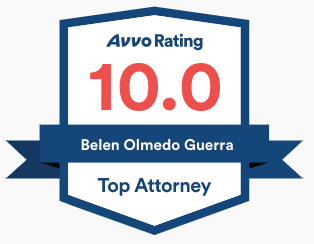Solicitation occurs when one person entices, requests, or demands that another person engages in criminal activity. While solicitation can refer to any felony or misdemeanor, it is most often used to refer to the solicitation of prostitution. Regardless of what charges your solicitation offense fall under, choosing the right Phoenix criminal defense attorney can make the difference between a case that’s dismissed and a case that results in conviction and an immense range of penalties.
What is Solicitation in Arizona?
Solicitation is always a criminal offense, and the charges and penalties associated depend on the crime that was solicited. Because there is a wide array of crimes that can be solicited, laws that govern solicitation also vary widely.
The most common form of solicitation is the solicitation of prostitution. Prostitution and all its forms are highly criminalized in Arizona. Of all fifty states, Arizona has some of the harshest penalties for those found guilty of solicitation of prostitution. The seriousness of solicitation charges can vary from city to city, but in Phoenix, solicitation of prostitution is typically a misdemeanor. To be guilty of solicitation of prostitution in Arizona, a person must:
- Command prostitution
- Encourage prostitution
- Requests prostitution
- Solicits another person to engage in prostitution
This means that both a person offering money in return for sex acts and a person offering sex acts for money are guilty of solicitation of prostitution.
For solicitation to have occurred, the actual crime does not have to be committed. For instance, if someone solicits a prostitute to engage in sexual acts for money, but is arrested before any exchange of money or sex acts has taken place, that person is still guilty of solicitation, though they are not guilty of engaging in the act of prostitution.
Though solicitation does not require that the actual crime has taken place, it does require that there was real intent to contribute to the commission of the crime. Solicitation is typically considered a “preparatory” offense, in the same category as attempt, conspiracy, or facilitation.
What are the Penalties for Solicitation in Arizona?
The penalties for solicitation depend on the crime that is being solicited. For instance, prostitution is a class 1 misdemeanor, so solicitation of prostitution is, therefore, a class 3 misdemeanor. But if a defendant were to solicit a Class 6 felony, for instance, they would face class 2 misdemeanor charges.
The vast majority of the time, solicitation of any crime will fall into the misdemeanor category. Only solicitation of a class 1 felony will carry felony charges in Arizona.
In Arizona, penalties for misdemeanor offenses are as follows:
- Class 1 misdemeanor: a maximum of six months of jail time, or
- Class 2 misdemeanor: a maximum of four months of jail time, or
- Class 3 misdemeanor: a maximum of thirty days of jail time.
An offense of solicitation of prostitution, for a first-time offender, carries a mandatory minimum of 15 days in jail. The maximum amount of jail time possible for a first-time offense is six months. A judge may also choose to impose a $2500 fine along with various fees, and up to three years of probation.
These penalties can escalate with every prior charge. For instance:
- With one allegeable prior conviction for solicitation of prostitution, the mandatory minimum becomes 30 days under Phoenix City Code.
- Two allegeable prior solicitations of prostitution convictions extend the mandatory minimum to 60 days in jail.
- Three prior convictions of solicitation of prostitution bring the mandatory minimum to six months in jail.
Jail times are in addition to the same $2500 fine, fees, and potential for lengthy probation periods which may include counseling and classes. These penalties are according to the Phoenix City Criminal Code, and other cities may vary slightly.
How to Beat a Solicitation Charge
Typically when fighting a solicitation charge, a Phoenix sex crime defense attorney will search out a law enforcement error, such as an improper reading of the Miranda Rights or performing a search without a search warrant.
One of the most common defenses for solicitation of prostitution is a lack of intent. Just because a defendant has a conversation with a prostitute, or with an undercover police officer posing as a prostitute, does not mean they actually intended to go through with the sex act. This is sometimes known as the “Just Kidding” defense, meaning that the defendant was not serious about soliciting the crime.
For example, a college-age male leaning out of a window of a car full of his friends to shout “how much?” to a prostitute or an undercover officer fits the technical definition of solicitation, but will likely not hold up in court, as it is unlikely the defendant would have gone through with the actual sex act. Therefore, they did not actually engage in solicitation of prostitution
Many defense attorneys will also challenge the evidence presented by the prosecution and the way in which the evidence was obtained, especially in cases of solicitation of prostitution. Entrapment is a common defense used to combat solicitation charges, especially solicitation of prostitution, considering many of these arrests occur in undercover police operations.
Proving Entrapment in a Phoenix Court
Entrapment occurs when a member of Arizona law enforcement induces an Arizona citizen to commit a crime. To prove entrapment has taken place, a defendant must prove that they would not have committed the crime, nor had any previous disposition to commit the crime, without extreme action taken by the law enforcement officer.
Entrapment can be somewhat difficult to assert as a legal defense. The simple presence of an undercover police officer is not enough to constitute entrapment. Law enforcement officers are permitted to hide their identities in the course of their investigations, so long as the defendant is not unlawfully induced to commit a crime.
To prove entrapment has occurred, a defendant must prove:
- That the idea of committing was the law enforcement officer’s, and not the defendant’s
- The defendant committed the offense because law enforcement officers or their agents made efforts to urge or induce them to do so
- That the defendant had no predisposition to commit the crime until law enforcement induced them to do so
This last point is the most difficult to assert. For instance, if an alleged prostitute is arrested for solicitation of prostitution to an undercover officer, meaning they offered sex acts to that undercover officer in return for money, it may be very difficult to prove that the defendant would not have committed the same crime in the absence of the undercover officer. However, if the undercover officer were to harass a person repeatedly in order to elicit a solicitation of prostitution, the defense of entrapment could be asserted. Entrapment is a common defense for all forms of solicitation.
Belen Olmedo Guerra Will Fight For You
Belen Olmedo Guerra is an experienced criminal defense attorney in the Phoenix area. With precision and experience, she will use the evidence the state intends to use against to craft a defense driven toward the best outcome for you. As a fierce advocate for her clients’ rights, Belen can help you navigate the legal landscape with ease.
Belen understands that solicitation charges can be embarrassing and damaging to your reputation and will handle your case with extreme professionalism and discretion.
If you have been arrested or are about to be arrested on solicitation charges, act now and contact 24-hour criminal defense attorney Belen Olmedo Guerra to fight for you. For a free initial consultation, call (602) 715-0908. Phone answers 24/7 and collect calls from inmates are accepted.




















